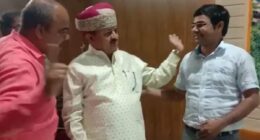## Maharashtra Assembly Elections: A Complex Coalition Game
As Maharashtra gears up for crucial assembly elections, the INDIA alliance (Congress, Shiv Sena (UBT), NCP) and the NDA (BJP, Shiv Sena (Eknath Shinde), NCP (Ajit Pawar)) are locked in intense negotiations.
The INDIA alliance hopes to build on its momentum from the recent general elections, aiming to capitalize on perceived anti-incumbency against the NDA government. However, seat-sharing within the INDIA alliance has become a major point of contention.
The Shiv Sena (UBT) seeks to contest the most seats, a move opposed by the Congress and NCP who argue that the Sena’s recent split has weakened its support base. The Congress also desires a significant number of seats, citing its stronger performance in the general elections.
Adding to the complexity, the issue of Chief Ministerial candidacy has divided the alliance. Uddhav Thackeray (Shiv Sena (UBT)) suggests that the alliance leadership should decide, while the Congress and NCP prefer a post-election decision based on each party’s performance.
Several seat-sharing formulas are being considered, with each party aiming for around 90-95 seats based on their 2019 performance. However, factors like historical performance, local influence, and recent political shifts are complicating negotiations.
The INDIA alliance sees an opportunity to translate its strong Lok Sabha performance into a state-level victory. While the NDA also faces challenges in ticket distribution, a coordinated seat-sharing strategy within the INDIA alliance could prove crucial to its success. Maintaining unity and focusing on the larger goal are critical for both coalitions.






